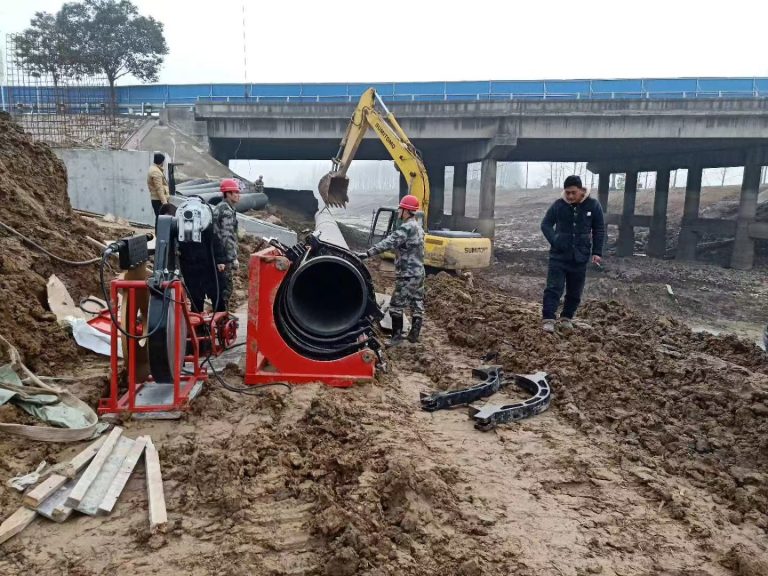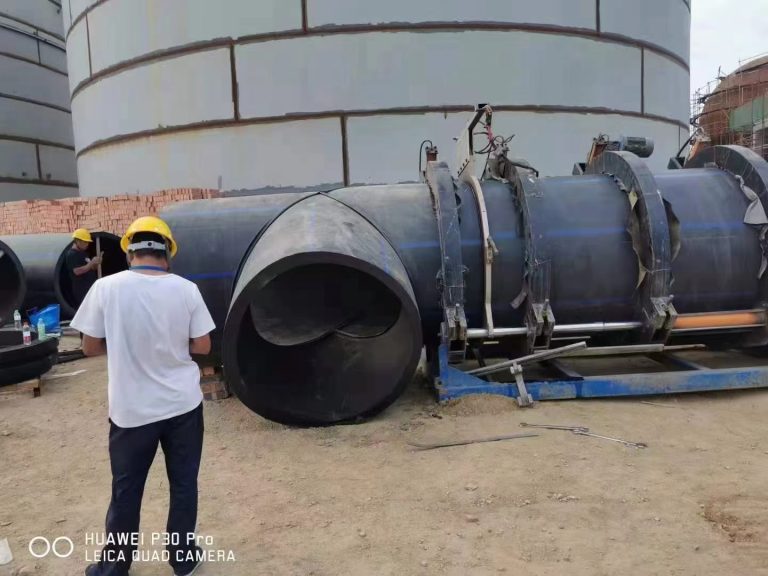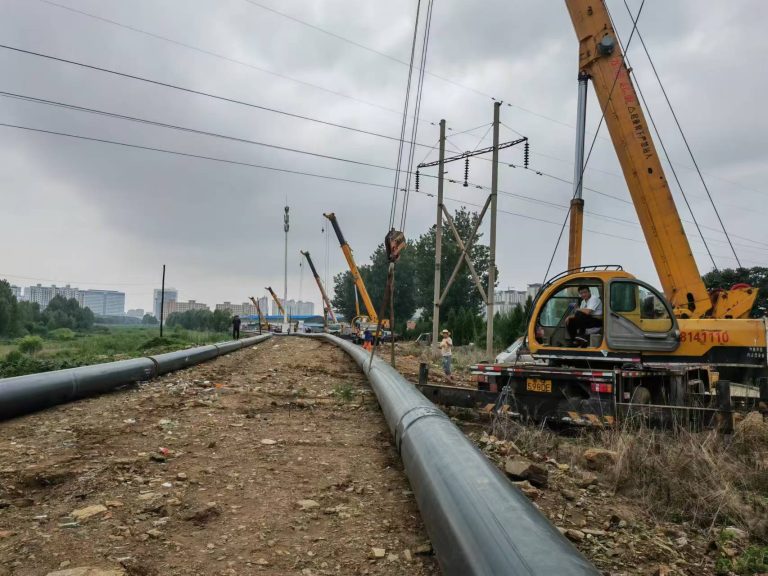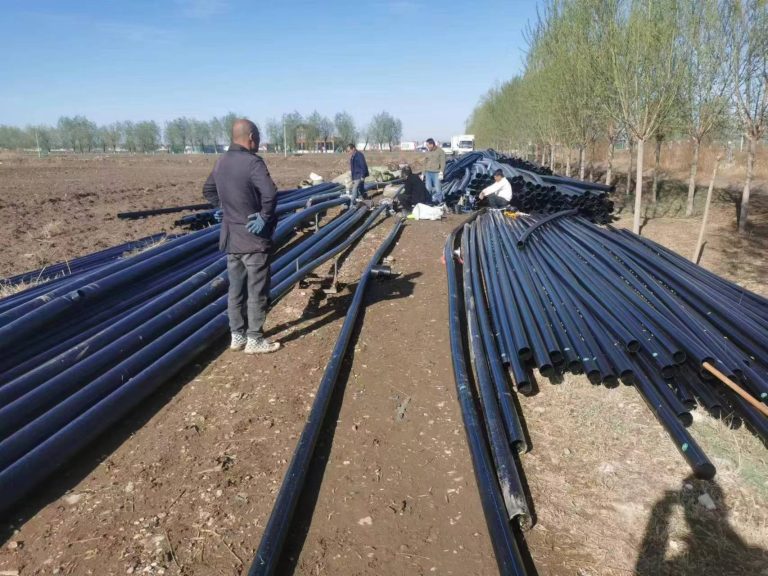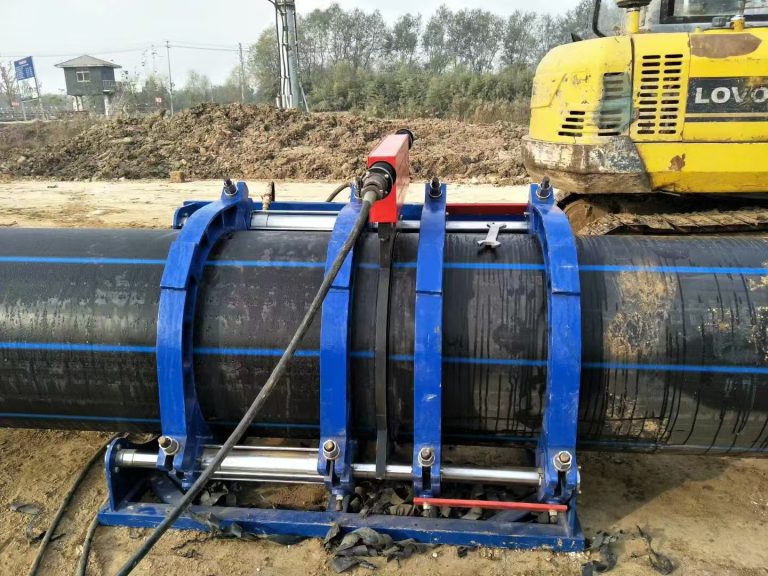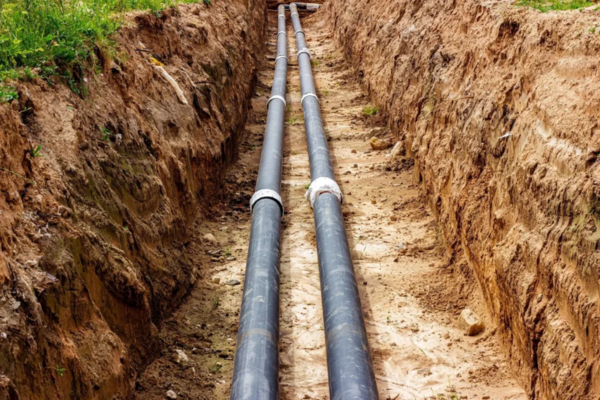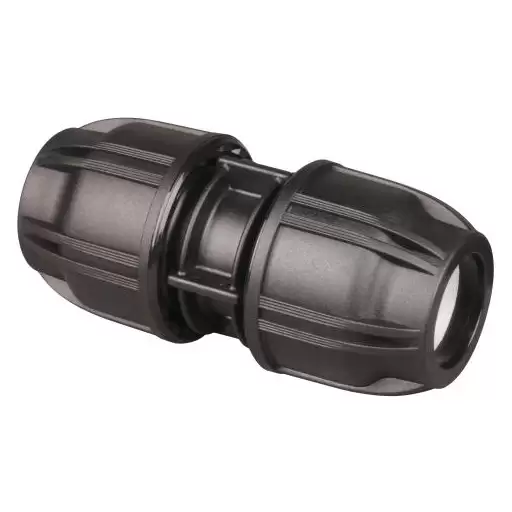HDPE GSHP Pipe
Introduction to HDPE GSHP Pipe
Geothermal technology employs the earth’s energy for space heating and preheating domestic hot water. It has been a prosperous clean energy technique for many years. It is done simply by burying HDPE GSHP Pipes to allow the exchange of heat between the fluid in them and the ground, thereby providing heat in winter and cooling during summer.
The system incorporates underground HDPE GSHP Pipes, a compressor, and an air distribution network.
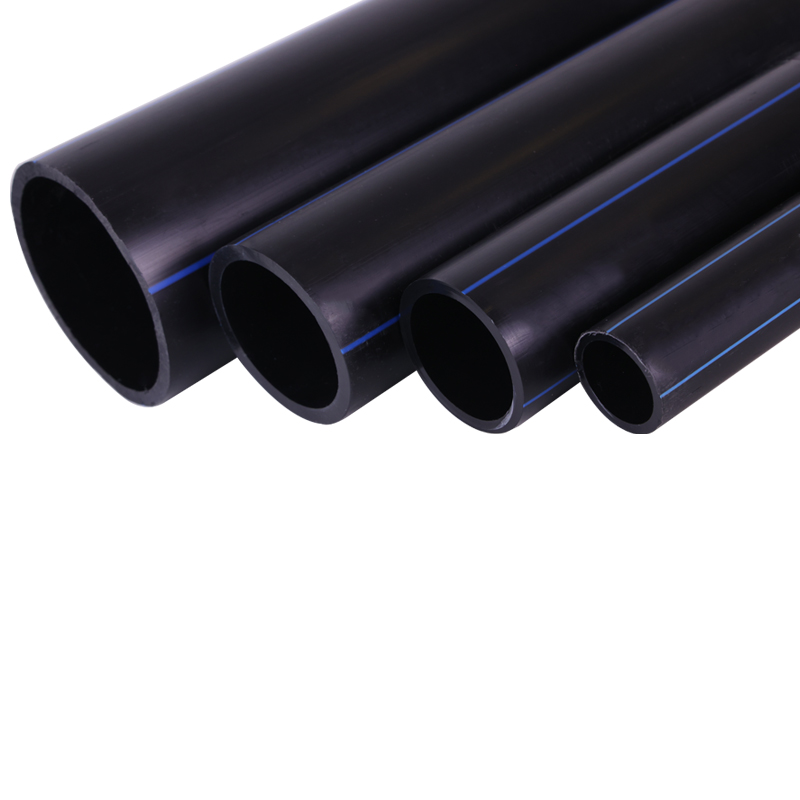
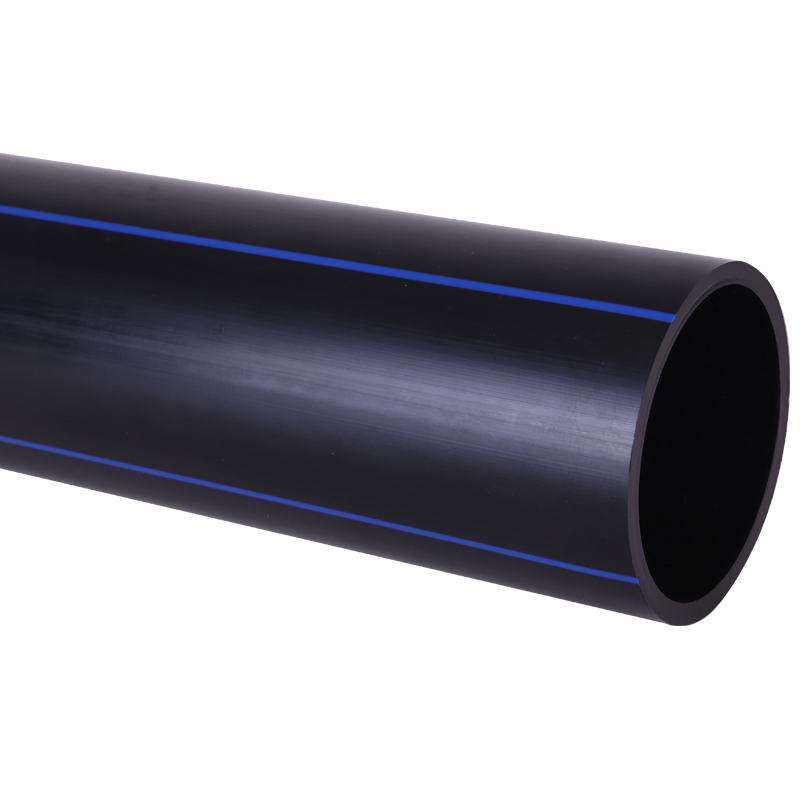
Advantages of Geothermal HDPE Pipe
- Flexibility is excellent
- No salt deposits will accumulate inside
- Electrolysis is not necessary
- Small coefficient of thermal expansion
- Endurance in severe conditions (high temperature, high pressure)
- Different dimensions possible
- Interconnection with all plastic pipe jointing systems are easy
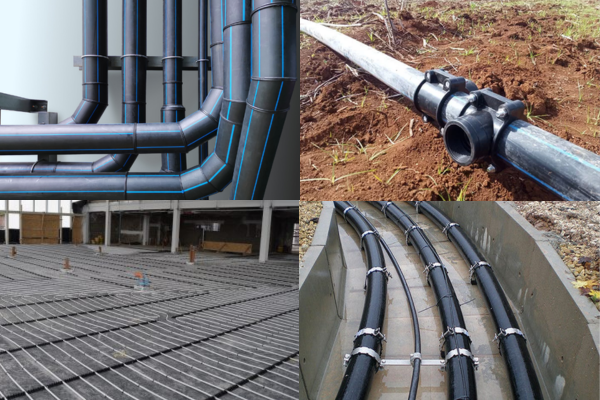
Applications Of Hdpe Pipe For Geothermal
- Cold and Hot Water Distribution:HDPE pipes are used for efficient and reliable distribution of both cold and hot water in geothermal systems.
- Solar System, Air-Conditioning, and Refrigeration System: Because of their long-lasting nature and heat insulation qualities, these pipes find great applications in solar heating systems as well as air conditioning and refrigeration systems.
- Underfloor Heating PEX Systems: These types of tubes carrying fluids like water are commonly found in underfloor heating systems to guarantee an even supply of heat energy.
- Medical, Foodstuff, and Chemical Industries’ PEX Pipe Systems: The medical industry, food manufacturing sector, and chemical companies use HDPE pipes because they have properties that allow them to withstand chemicals that may come into contact with them without getting damaged.
- Gas and Air Distribution: HDPE pipes are also used in the distribution of gas or air which facilitates safe transportation while geological activities are being conducted.

Geothermal heating and cooling are the most popular choices for home and office use in the quest for sustainable energy solutions. The HDPE Ground Source Heat Pump pipe is at the core of this technology, allowing for efficient heat transfer from earth to premises. In addition, this article discusses why one would use HDPE GSHP pipes and their resilience, efficacy, and environmental benefits.
Hdpe Gshp Pipe Specifications Chart
| Nominal outer diameterDN(mm) | Wall Thickness (mm) | |
|---|---|---|
| SDR13.6 1.25 Mpa | SDR11 1.6 Mpa | |
| 25 | 1.9 | 2.3 |
| 32 | 2.4 | 3 |
| 40 | 3 | 3.7 |
| 50 | 3.7 | 4.6 |
| 63 | 4.7 | 5.8 |
| 75 | 5.6 | 6.8 |
| 90 | 6.7 | 8.2 |
| 110 | 8.1 | 10 |
| 125 | 9.2 | 11.4 |
| 140 | 10.3 | 12.7 |
| 160 | 11.8 | 14.6 |
| 180 | 13.3 | 16.4 |
| 200 | 14.7 | 18.2 |
| 225 | 16.6 | 20.5 |
| 250 | 18.4 | 22.7 |
| 280 | 20.6 | 25.4 |
| 315 | 23.2 | 28.6 |
| 355 | 26.1 | 32.2 |
| 400 | 29.4 | 36.3 |
HDPE GSHP Pipe Catalog
Pipeline Related Articles
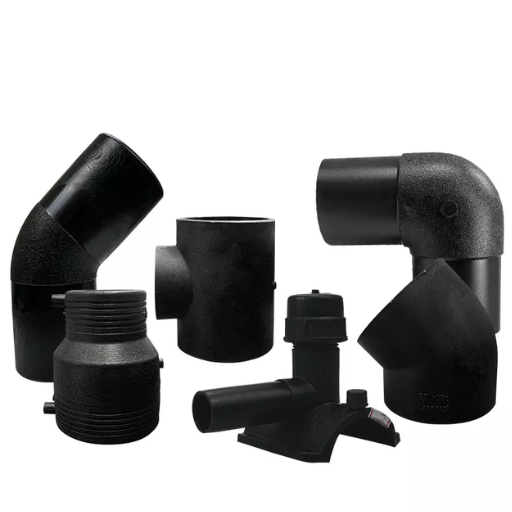
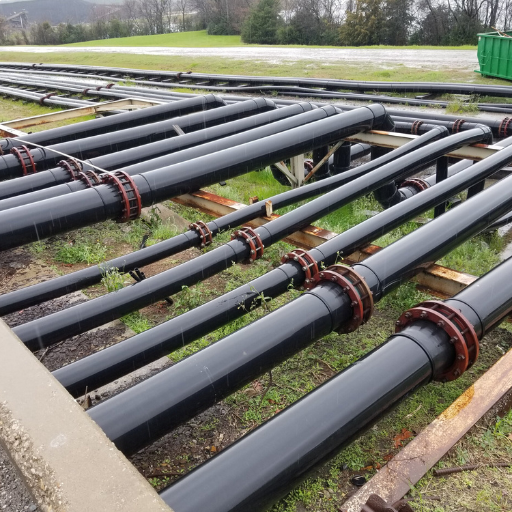
The Question
Common FAQ
Explore comprehensive information regarding HDPE GSHP pipe. Don’t hesitate to contact us with any inquiries.
Q: What is HDPE GSHP pipe, and why is it commonly used in geothermal heat pump systems?
A: HDPE GSHP (High-Density Polyethylene Ground Source Heat Pump) pipe is a plastic piping material specifically designed for ground source geothermal applications. It is favored in geothermal heat pump systems because of its durability, corrosion resistance, flexibility, and long lifespan.
Q: How does a ground source geothermal system work with an HDPE GSHP pipe?
A: HDPE GSHP pipe creates a geothermal ground loop in a ground-source geothermal system. This loop absorbs heat from the ground and transfers it to the geothermal heat pump, which distributes the heat throughout the building. The system can also reverse the process to provide cooling.
Q: What are the advantages of using HDPE GSHP pipe in geothermal heat pump systems?
A: The advantages of using HDPE GSHP pipe include its high resistance to corrosion, excellent durability, and ability to withstand varying temperatures and pressures. It also provides a cost-effective and efficient solution for both commercial and residential buildings.
Q: What are the critical properties of HDPE that make it suitable for geothermal exchange?
A: HDPE’s key properties include its high tensile strength, low coefficient of thermal expansion, resistance to chemicals and corrosion, and exceptional flexibility. These properties make it ideal for use in geothermal exchange applications.
Q: How does installing an HDPE heat pump pipe differ from other ground source geothermal systems piping materials?
A: HDPE heat pump pipe installation typically involves fusion welding techniques, which create a seamless and leak-proof connection. This differs from other piping materials that may require mechanical joints or fittings, which can be more prone to leaks and failures over time.
Q: Are there specific standards or certifications that HDPE GSHP pipe must meet?
A: HDPE GSHP pipe must meet specific standards such as NSF certification for potable water applications and ASTM D3035 for dimensional and pressure ratings. These standards ensure the pipe’s safety, performance, and suitability for geothermal ground loop systems.
Q: Can HDPE GSHP pipe be used in horizontal and vertical geothermal ground loop installations?
A: HDPE GSHP pipe can be used in horizontal and vertical geothermal ground loop installations. Its flexibility and durability suit various installation methods, including trench and borehole systems.
Q: Is HDPE GSHP pipe suitable for commercial and residential geothermal heat pump systems?
A: Absolutely. HDPE GSHP pipe is versatile and can be used in various applications, including commercial and residential buildings. Its robust performance and long lifespan make it an ideal choice for any geothermal heat pump system size.
Q: What is the role of a PE-RT pipe in the geothermal industry, and how does it compare to an HDPE GSHP pipe?
A: PE-RT (Polyethylene of Raised Temperature Resistance) pipe is another plastic piping material used in the geothermal industry. While it also offers flexibility and durability, HDPE GSHP pipe is more commonly used due to its higher tensile strength and better performance in extreme conditions.

